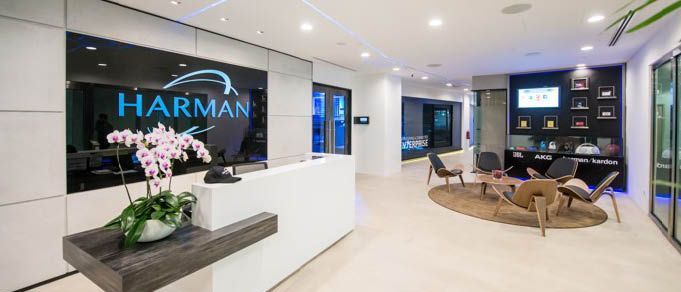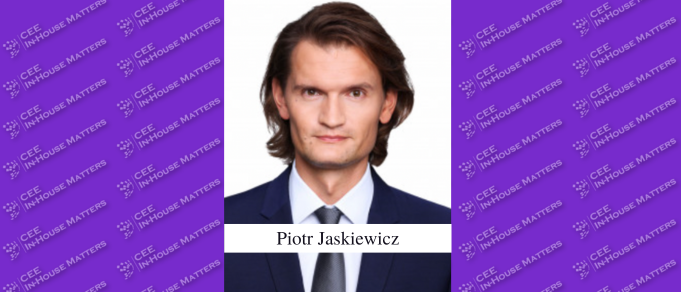Hungarian lawyer Peter Paroczi is the Director Counsel at Harman International, the US-based consumer electronics company. He joined Harman in Budapest earlier this year, after spending four years in private practice and then another seven in-house, first with Samsung Electronics, then at E.On. He agreed to answer some of our questions about his career.
CEELM: To start, run our readers through your career leading up to your current role.
P.P.: I started my carrier at the Deri & Lovrecz Law Firm, which at that point in time was an associated law firm of KPMG and provided “all around” legal services to international companies. After spending three years there, I decided to move on and take a leap to a larger and truly global law firm: Baker & McKenzie. As a member of the firm’s Corporate/M&A practice group, I was engaged in a large number of M&A transactions. After Baker & McKenzie, I joined Samsung Electronics in 2010, where I was the General Counsel, Chief Compliance & Government Relations Officer of the company for almost six years. During my time at Samsung I was responsible for a broad variety of legal issues, including matters related to commercial, labor, and tax law, as well as state aid and greenfield investments. Following a short period at E.ON Hungary, I joined Harman International as the Director Counsel for the company, where I advise the company on commercial matters at a global level. I also oversee the operation of Harman’s Hungarian entities, including its manufacturing sites, which have more than 3000 employees.
CEELM: You worked in private practice for a little over four years before joining the in-house world. In your view, how do the two environments differ?
P.P.: Being an in-house counsel (for global companies) requires different or additional skills, since you are a member of a larger, often global organization and approaching day-to-day issues from different angles (taxation, internal budgeting, organizational aspects, etc.) is critical. In-house counsels are usually part of management, and an in-depth understanding of the business is extremely important. Management skills are crucial if you are leading a department. Being able to handle stress and carry a heavy workload goes without saying, I think.
CEELM: And what skill sets do you believe are critical for a lawyer to master in order to make the transition from private practice to in-house as smooth as possible?
P.P.: Having a business mindset and management skills are the most important things. Without these, you will not be able to function within your organization adequately. Handling fast decision making is also critical. Understanding and properly dealing with different types of corporate and organizational cultures are also amongst the core value of doing business nowadays.
CEELM: What was the one project (either with your current or previous companies) that you are proudest of?
P.P.: Providing legal advice to the commercial operation of Harman International with a focus on procurement matters (Harman International owns a wide variety of global brands, such as JBL, AKG, Harman/Kardon, Infinity, Bang & Olufsen, and Mark & Levinson, among others.). From the past, I would mention a strategic investment of Samsung Hungary, where I advised the company relative to a manufacturing facility investment.
CEELM: What does a regular day in the office look like for you now? What recurring tasks take up the most of your time?
P.P.: I am responsible for the global operation, so I would say that the first part of the day usually goes for those matters coming from China and Japan, while the afternoon hours are reserved for matters coming from Harman’s EU and the US entities. Since we are a US-based company, most of the conference calls are done in the afternoon or in the evening. Drafting and negotiating are the most recurrent tasks, I would say. Daily meetings take most of my time.
CEELM: Cost-cutting has been at the top of the agenda for in-house counsel for quite a few years now. What solutions, if any, did you implement that worked best for your organization?
P.P.: Cutting costs is very critical. You are not doing your job properly if you are not cutting costs. This is why most international companies hire professionals from top tier law firms with a strong business mindset (because they understand how big law firms operate and are familiar with their high work ethics). Delivering fast and clear advice is also crucial. You cannot walk in to a board meeting with lengthy, overcomplicated reports. Internal trainings and simplified template contracts are good tools to speed up the decision making and reduce the risks of the business.
CEELM: When you need to outsource legal work, what are the main criteria you consider when picking which firm/lawyer you will be working with?
P.P: Professional competence, costs, speed, and flexibility.
CEELM: On the lighter side, what was the best team-building exercise you ever participated in?
P.P.: Training sessions with the world boxing champion, Erdei “Madar” Zsolt. Most of his insights on success, failure, and competition can be implemented in business. That was a remarkable one.
By Olga Lukyanova, Law Department Head and Compliance Officer, Henkel in Ukraine
This Article was originally published in Issue 4.8 of the CEE Legal Matters Magazine. If you would like to receive a hard copy of the magazine, you can subscribe here.




















